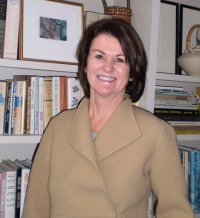Cheryl Wilder, Court Reporter
Cheryl Wilder
Court Reporter
Cheryl grew up in Arizona and attended Phoenix College. After an early marriage that ended, she found herself a single parent who needed a career with flexible hours and one that would enable her to make a good living. A friend told her about court reporting and so she decided to acquire the skills needed. She completed her training at the Santa Ana Court Reporting School, Santa Ana, California. After receiving her certification, Cheryl opted to be a freelance court reporter.
Cheryl says, “This is very hard work. People know little about how court reporting works, including most attorneys. Once a court reporter transcribes a court hearing or deposition, it is necessary to go through all of the notes taken, do research and look up medical terms, etc. Then a readable version must be made for the parties to review.”
She only takes depositions and never or rarely works in court. Cheryl says most cases are settled outside of court. She deposes both sides of cases, plaintiff’s, doctors, witnesses, and expert witnesses. Cheryl works on, personal Injury, medical malpractice, family law, and civil litigation cases.
Some of the challenges in this profession are being accurate, understanding what people say, being able to decipher accents and trying to record when people are talking at the same time. Additional stress results from the expectation of how fast you can deliver the readable version and not having control over your own time on large projects. You do not have a chance to meet a lot of people because as soon as the depositions are over, your work begins.
Cheryl says the most rewarding and enjoyable aspect of court reporting is the information and knowledge you learn on the job. She says, “It is a great career for women and it pays well because originally it was a male profession.”
According to Cheryl the traits needed for this career are “…a love for stenography, good listening skills, typing quickly, perseverance, and being able to work with and accommodate people.”
During the 30 years that Cheryl has been a court reporter, the computer has had the most significant impact on the profession. When she started working as a court reporter, she used a steno machine, re-dictated the deposition and typed with carbon paper. Today a steno machine is used and all goes into the computer when she is writing. Another change is a new career has been born, “Closed Captioning” for deaf people. Court reporters provide this service. By Fed Law, TV has to accommodate the hard of hearing. Also, court reporters provide this service in schools for the hard of hearing.
Cheryl says that her early education provided her with excellent English language and grammar skills which have helped her in this career.
When Cheryl takes time off, she loves to travel, read, play tennis, snow ski, and have dinner parties.
One of Cheryl’s Favorite Books
National Certification requires 10 hours of study. Court reporters can only work in the states where they have certification even if they have the National qualification.
Every state has different requirements for maintaining certification.

